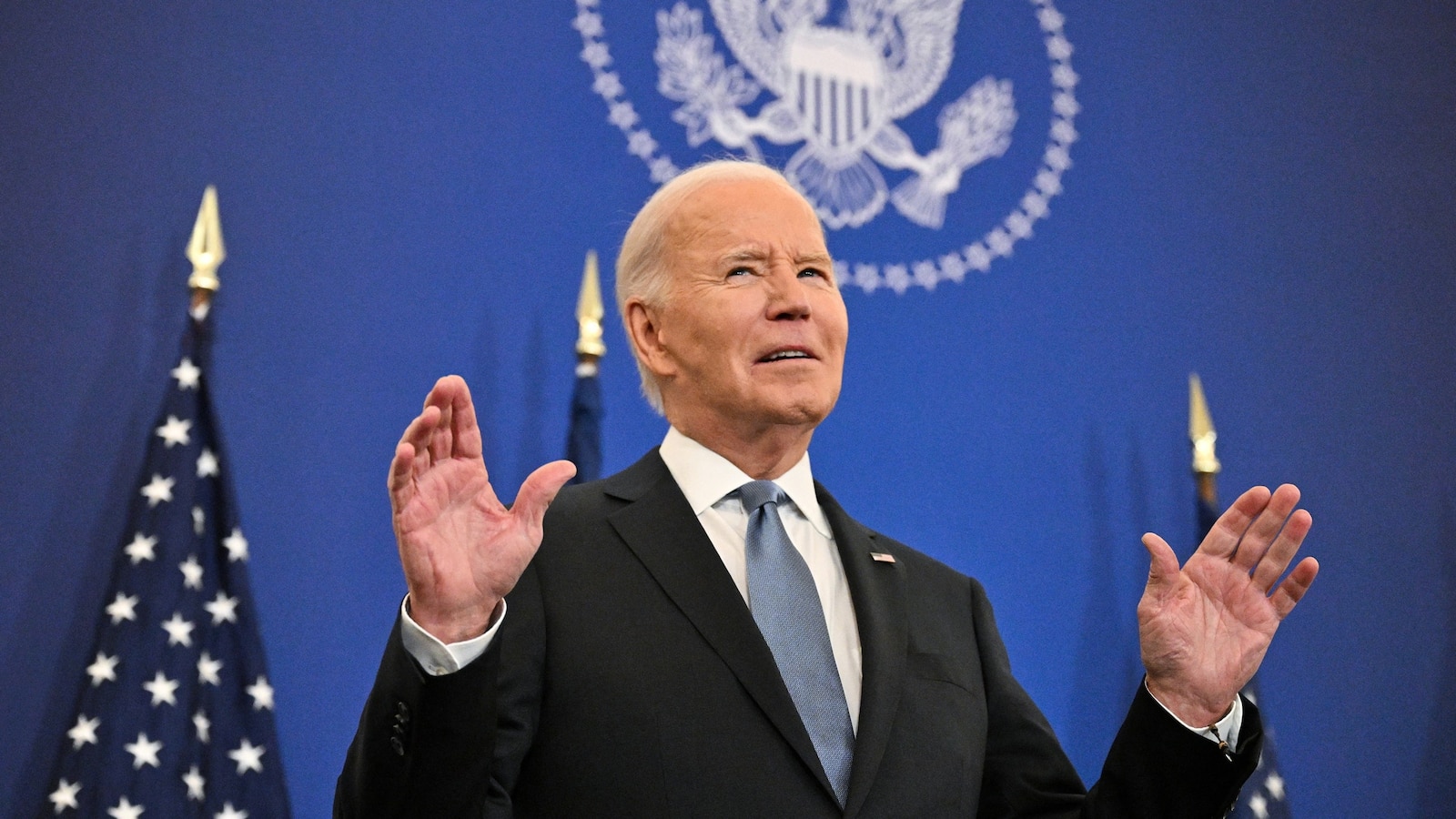In a speech touting his foreign policy legacy, President Joe Biden on Monday said the U.S. was “pressing hard” to close a deal that would see some of the hostages held by Hamas freed in exchange for a period of peace in Gaza.
“On the war between Israel and Hamas, we’re on the brink of a proposal that I laid out in detail months ago finally coming to fruition,” Biden said during an address at the State Department, adding that he had learned during his long career in public service “to never, never, never, ever give up.”
“The Palestinian people deserve peace and the right to determine their own futures. Israel deserves peace and real security. And the hostages and their families deserve to be reunited,” the president continued. “And so, we’re working urgently to close this deal.”
In advance of the president’s speech, confidence that the ongoing high-level talks could finally yield a long-awaited ceasefire agreement bloomed across Washington as the White House signaled a deal could be cemented before the Biden leaves office.
“We are close to a deal, and it can get done this week,” national security adviser Jake Sullivan said during a press briefing at the White House. “I’m not making a promise or a prediction, but it is there for the taking and we are going to work to make it happen.”

President Joe Biden arrives to speak at the State Department in Washington, Jan. 13, 2025, as he delivers his final foreign policy speech.
Roberto Schmidt/AFP via Getty Images
Other members of the administration were even more cautiously optimistic, predicting that the next 24 hours would likely be “make or break” for the negotiations.
The current proposal on the table calls for an initial ceasefire period lasting at least six weeks in exchange for the release of around 30 living or dead hostages held in Gaza, according to officials familiar with the talks, who add that Israel is also expected to release more than a thousand Palestinian prisoners and detainees.
The officials say many of the specifics, including the exact number of hostages that would be turned over, are still being worked out, but that Hamas has indicated its willing to hand over at least two of the seven American citizens the group is holding in captivity n — Sagui Dekel-Chen, 36, and Keith Siegel, 65.
While the Biden administration has been pushing Israel and Hamas to sign onto a version of the current deal since the president outlined his framework for three-stage peace pact in late May, members of the incoming Trump administration have played an increasingly significant role in the mediation process as the inauguration draws closer.
Sullivan said that coordination served to present “a united message” that it is “in the American national security interest, regardless of party, regardless of outgoing or incoming administration to get this deal done as fast as possible.”
The Trump team’s involvement is also necessary from a practical standpoint since the U.S. would act as a guarantor of any deal that comes to fruition and the Biden administration won’t be in power long enough for it to play out.
President-elect Donald Trump has warned Hamas repeatedly that “all hell will break out” if the hostages aren’t released by his inauguration on Jan. 20.
Ahead of his speech at the State Department, Biden said he had worked the phones — speaking with the leader of Qatar, a critical intermediary with direct lines to Hamas, on Monday and talking with Israeli Prime Minister Benjamin Netanyahu on Sunday, according to the White House.
Biden said he would also soon speak to Egypt’s President Sisi, another key broker overseeing the negotiations.

